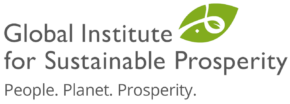GRANVILLE, Ohio – Rohan Grey (Research Scholar, Binzagr Institute) and Nathan Tankus (Research Scholar, Modern Money Network) have co-authored a new study titled “Corporate Taxation in a Modern Monetary Economy: Legal History, Theory, Prospects” (Working Paper No. 118, November 2017).
As policymakers debate the merits of the White House tax reform bill in Washington D.C., this research disputes the validity of the traditional justifications for taxation. “Most people think of taxation as a way to raise revenues in order to fund government expenditures, redistribute wealth, and affect people’s behavior,” said Fadhel Kaboub, President of the Binzagr Institute. “This analysis challenges the validity of these traditional justifications and encourages us to rethink fiscal policy in a way that focuses on the public purpose in a more careful manner,” he added.
The analysis draws important insights from Modern Monetary Theory (MMT) to demonstrate that 1/ the revenue theory is false, 2/ the distribution theory is weak, and 3/ from a behavior theory standpoint, modern corporate income tax has highly perverse impacts on corporate behavior. To conclude, Grey and Tankus summarize their argument as follows:
“we are not recommending the elimination of corporate income taxes as a stand-alone policy change. We recognize that based on current evidence, the incidence of these taxes may very well fall to a significant extent on capital income, with positive social effects for economic equality and egalitarian-oriented growth. Instead, we think higher marginal personal tax rates on overall income, as well as high capital gains taxes, would replicate or even outperform corporate taxation in regulating the “capital” share of income.”
A brief promotional video for this working paper is available on the Binzagr Institute’s YouTube channel.
The Binzagr Institute for Sustainable Prosperity is an independent public policy think-tank dedicated to the promotion of interdisciplinary research in the service of an improved quality of life for all members of society. The institute provides alternative public policy solutions that address a wide range of socio-economic problems faced by the global community. If you would like more information on the institute’s publications, please call 740-587-6315 or send an email to [email protected].
